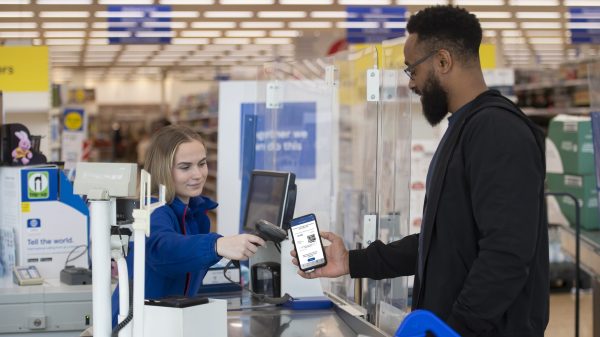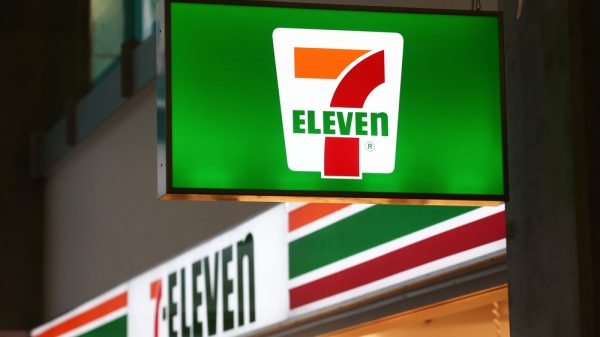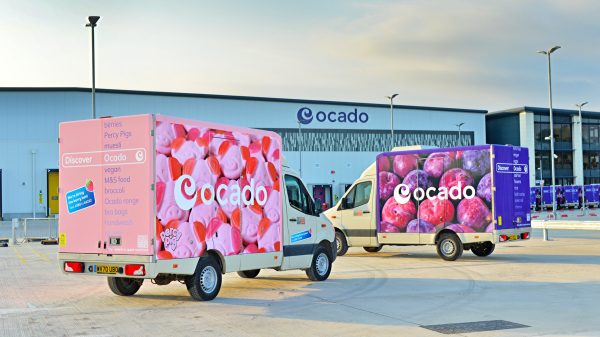Aldi called time on its zero-waste refill station which saw shoppers buying loose foods in refillable packaging and Tesco ended its ‘return on the go’ reusable packaging scheme earlier this month, putting an end to trials which allowed customers to increase their sustainable shopping habits.
Despite the potential for making a significant difference to the amount of plastic waste generated by supermarkets and packaging, the initiative simply didn’t take off as expected, for either grocer.
Tesco said the results of the trial had been “very encouraging”, with most customers hoping to “see the scheme develop”. But with no plans to roll the scheme out further and removing the trial from the ten stores it was already in, the supermarket’s actions speak louder than its words.
Despite supermarkets’ best intentions to improve their sustainability efforts and reduce plastic waste, are zero-waste refill stations, such as Aldi’s, simply an unrealistic goal for a national market in the middle of a cost-of-living crisis?
READ MORE: Supermarket food could carry ‘green’ labels to highlight eco-friendly choices
The ins and outs of a packaging-free store
A growing concept across the independent grocery sector, there are already a number of zero-waste stores which are entirely packaging-free.
These are typically locally-based shops which have dozens of refill stations stocked with loose food such as pasta, rice, beans and cereals as well as fresh, organic fruit and vegetables. These shops require no packaging other than a re-usable container to store the purchased items.
Many of these stores also include loose, eco-friendly cleaning products, catering to a wider range of shoppers needs.
An advocate for the zero-waste movement and founder of Unpackaged, the UK’s leading consultancy specialising in reuse and refill, Catherine Conway told Grocery Gazette of the benefits of a packaging-free store.
She says the initiative helps to reduce material waste from waste disposal, reduce carbon from less packaging and produce less food waste through customers only buying what they need.
Conway also outlined why retailers need to increase sustainability efforts, saying: “Less obviously sustainable brands and retailers are beginning to feel the pinch of incoming regulatory change [plastic tax] as well as being the target of many NGO campaigns so they are investing in reusable and refillable options.”
In recent years, national grocers including Waitrose and Aldi have branched out by adding these refill stations to certain stores, however many of these unfortunately begin and end with a trial process.
Are supermarket shoppers simply not ready for the change or are there other issues which ultimately prohibit running these initiatives at a national level?
READ MORE: Recyclable packaging the most important green factor for British shoppers
The supermarkets war against waste
On average 66 pieces of plastic packaging are binned by households every day, amounting to 96.6 billion pieces in the UK every year. Of this, 83% comes from food and drink packaging, according to the Big Plastic Count Campaign.
The large-scale implementation and use of in-store refillable loose food stations would make a significant dent in that number, but larger retailers have struggled to make the initiative work in-store.
Discount retailer Aldi recently ended its trial of this sustainable shopping method at its store in Ulverston, Cumbria which had been running since last year. Eight refill stations allowed customers to fill free recyclable paper bags or reusable containers with a range of products including basmati rice, brown rice, penne pasta and wholewheat fusilli.
At the time of the launch, Aldi’s plastics and packaging director, Richard Gorman said: “We hope local customers embrace the trial and we will use their feedback to inform any future plans around refillable products.”
Following its completion, an Aldi spokesperson told Grocery Gazette, “We’re reviewing the results of that before announcing our next packaging-free trial.”
For its part, Tesco – who partnered with zero-waste business Loop for its ten-store reusable packaging returns trial which ended in July – has said it will now reflect on the insights collected as it “takes what we’ve learnt and plan the next phases of our work to introduce reusable packaging solutions”.
However, for Waitrose, its initiative made it through the trail process as it was the first supermarket in the UK to offer its customers in-store refill stations back in 2017 when it launched the Unpacked initiative at its Oxford store. The grocery giant later rolled this sustainable shopping service out to its Cheltenham, Abingdon and Wallingford stores in 2019.
In 2020, the first-ever Refill Coalition was convened by Unpackaged and saw Morrisons, M&S, Ocado, Waitrose and supply chain solutions company, Chep collaborating to co-design an innovative refill solution. In a bid to develop a worldwide standard for plastic-free food distribution from the supplier to customers homes, the coalition retailers are looking to roll out refill stations across their stores by 2023.
READ MORE: Aldi packaging-free store trial comes to an end
Preparing the public
With a typical food shop consisting of pre-packaged grocery items easily picked up from store shelves, this alternative way to shop raises the question of whether the UK public is ready for such a change.
With so many in-store trial coming to an end with no renewal, it appears that there is not enough consumer appetite for supermarket in-store refill stations.
However, research by Gnatta contradicts that as it reveals that almost half (47%) of consumers say they prefer reusable packaging, while 32% prioritise sustainable materials and 31% prefer to source their products locally.
Conway says: “People care. The Blue Planet effect started the mainstream consciousness about the problem of plastic packaging pollution and there is a growing increase in awareness of climate change and the problems of biodiversity loss.
“People want solutions, they don’t want to feel guilty about the amount of plastic packaging they have to throw away at home.
“Shopping carefully and especially buying the staples that are often sold in loose formats [including pasta, rice and pulses] can save money which is key to consumers in the current climate.”
This increase in popularity can also be seen through the physical growth of dedicated zero-waste stores, including through Unpackaged’s partnership with the UK’s first fully certified organic supermarket, Planet Organic, which has since expanded to twelve bulk refill stations in their stores across London.
READ MORE: Tesco ends ‘ground-breaking’ Loop reusable packaging trial
Ready or not?
Despite indication that consumers are looking for ways to shop more sustainably, it’s retailers who hold the responsibility to tackle the issue of plastic waste and offer customers this alternative service.
Looking back at Tesco’s trial – which was part its 4R ‘Remove, Reduce, Reuse, Recycle’ plan – responsible sourcing director, Giles Bolton spoke of issues and improvements encountered within the trial.
He said: “Reusable packaging has long been considered an important part of the solution in the battle to eliminate waste, especially single-use plastic.
“What’s clear from our trial is that a prefill model of reuse has strong potential and can be set up to offer customers the ease and convenience they expect. But there’s still much more to do. Specifically, work is needed to encourage a cultural and behavioural shift from customers.
“Reuse represents a radical change in the shopping experience and while customers support the environmental principle, industry, policymakers and supply chains will need to work hard and work collectively to support and incentivise customers to adopt new shopping behaviours, while ensuring they don’t come at a cost to shoppers.”
Zero-waste grocery delivery service Good Club founder Ben Pattern told Grocery Gazette about the sustainable alternatives to in-store refill stations.
The company offers a carbon neutral grocery service delivered straight to customers’ doors, with any packaging returned at the time of the next delivery.
Patten says: “We certainly believe very strongly from consumer feedback that there’s a huge appetite for [sustainable shopping]. At the moment we have a cost-of-living crisis and there will always be competing counter considerations for any household, but I don’t really think that changes the underlying interest.
“Ultimately you will always need to ensure that the value you’re providing is commensurate with the additional charge that comes with that. For mainstream consumers you need to ensure that it’s just as convenient as single-use packaging and at cost parity.”
As large retailers consider tackling convenience and added costs of in-store refill stations, this service acts as just one alternative that still allows consumers to shop sustainably.
It appears clear that in-store refill stations are by no means unrealistic, however there is undoubtedly more work to be done before this can be rolled out on a widespread scale.
As the UK public looks to become more sustainable, refill stations could still be the future of grocery shopping – although this is likely to be a walk, not a sprint.
Click here to sign up to Grocery Gazette’s free daily email newsletter










